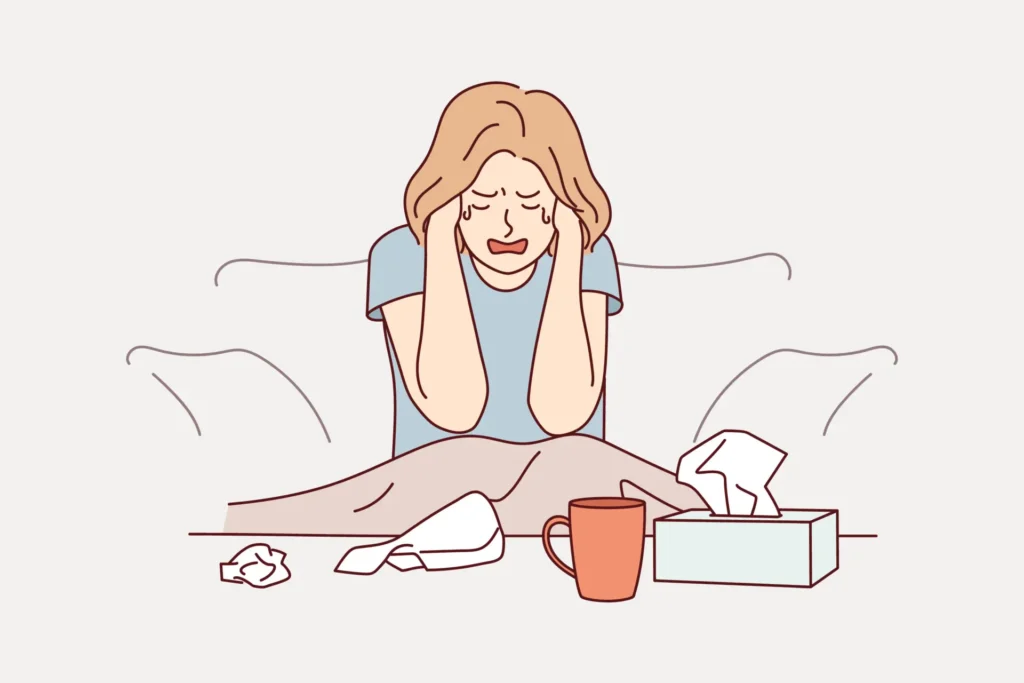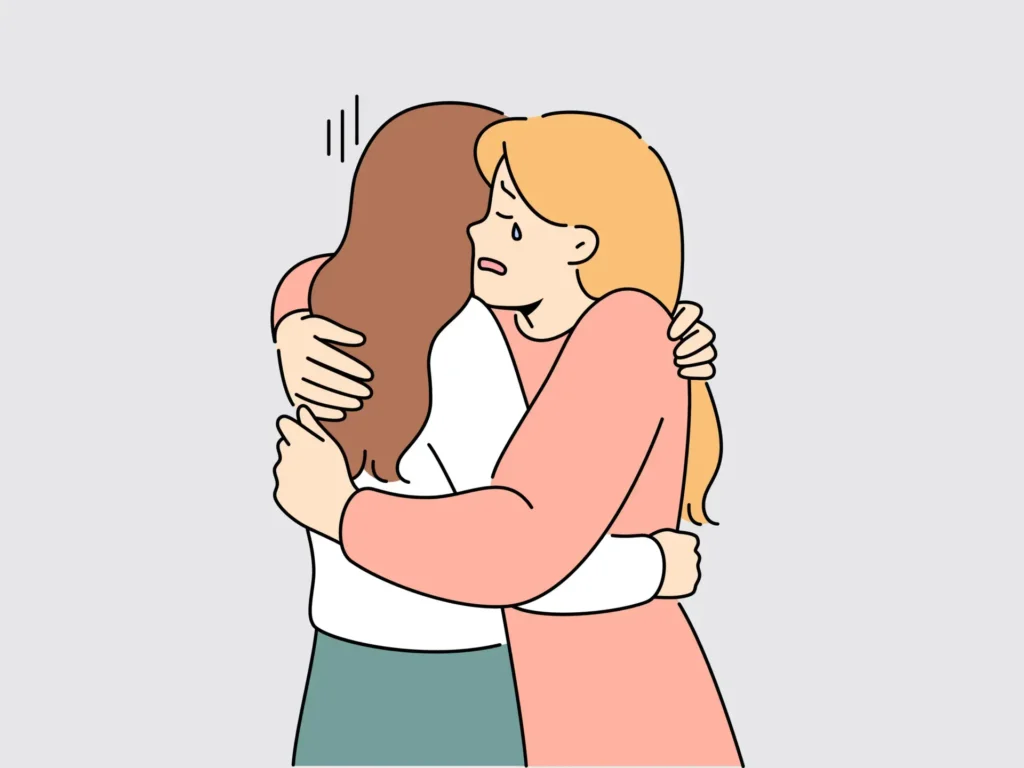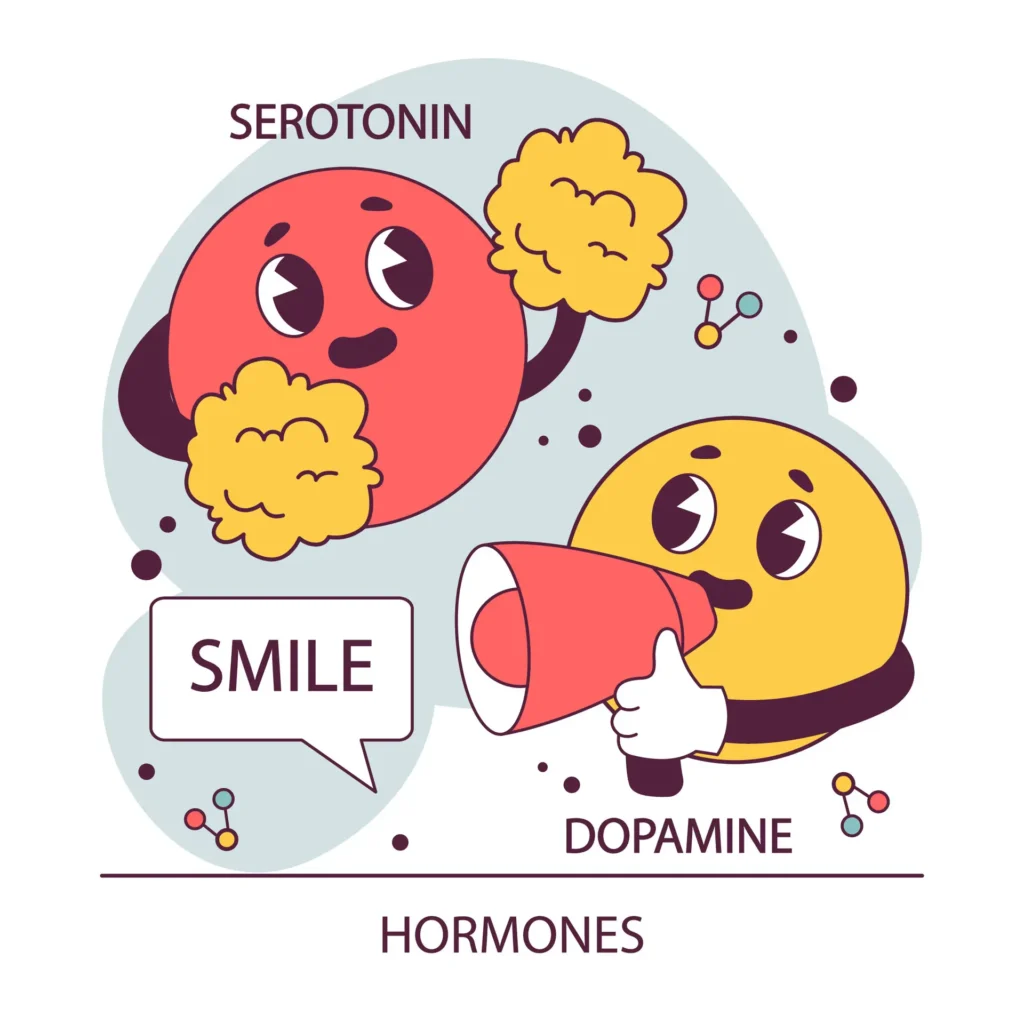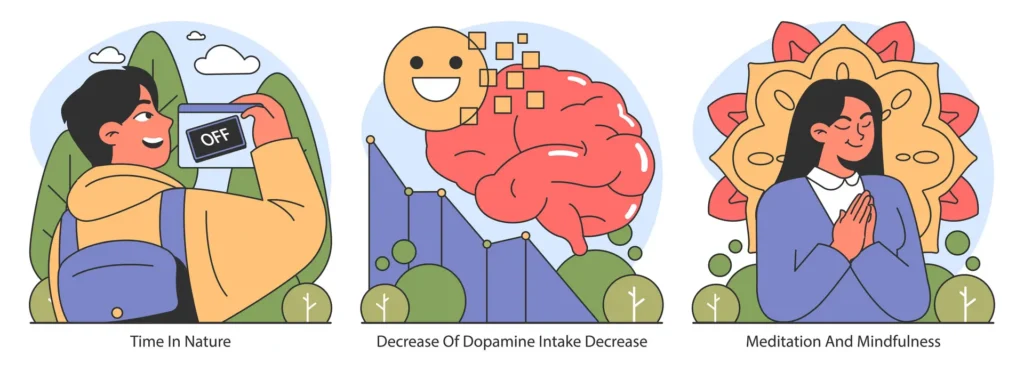
Dopamine Deficiency
Dopamine deficiency means a low level of dopamine in your brain. It is associated with specific health conditions. Individuals with Parkinson’s disease experience, in specific brain regions, a decrease in nerve cells and dopamine. When there’s no deficiency, dopamine helps the brain in alertness, focus, motivation, and happiness. A flood of dopamine can make you feel euphoric. Perhaps you’re familiar with it as the neurotransmitter associated with positive feelings. It is, in several ways.

Dopamine is closely associated with feelings of pleasure and reward. It’s not as easy as it seems. In reality, there is a lot of information to learn about this chemical. Dopamine plays a role in neurological and physiological functioning. It is a contributing factor in our motor function, mood, and even our decision-making. Different movement and psychiatric disorders often connect to it. In this article, we delve into the various functions of dopamine and how to identify if you have dopamine deficiency or if its levels are too high. Before continuing with information about Dopamine, I would like to tell you a little story.

Some time ago, on a bright Saturday morning, I invited my neighbor, Karina, to have coffee with me on my terrace. She was a teacher, and she told me she was looking forward to the summer vacation.
I’m so tired. And the worst part is that I feel more tired in the morning when I wake up than when I go to bed. Yesterday I failed to make an accident coming back home from school. My heart started to beat and speed up, and at one point, I was out of breath. I stopped the car, and I calmed down a bit,†said Karina.
“Maybe it’s anxiety,I told her, even though I knew she didn’t believe in anxiety or depression.
She looked at me and said,
“Nonsense! Anxiety! I’m not an anxious person. I’m not anxious about anything. Everything is under control in my life. So, stop telling me about anxiety, stress, or depression. I’m just tired!â€
She almost shouted the last words. She realized it and apologized.
“I snapped at you. I’m so sorry. These last days I snapped three times at my husband. We’ve been married for almost forty years, and I’ve never shouted at him. What’s going on with me?â€
And she cried.
I tried to convince her to see a doctor.
I’m all right, just tired, and I can’t sleep either,†was all she was saying. I have never told Karen that for a period of my life, around 15 years, I used to work as a nurse in a big hospital. I recognized the symptoms, and I thought, anxiety, fatigue, sleep difficulty: maybe she has depression. Anyway, her dopamine seemed to be very low and that was terrible. She had to see a doctor to know for sure what was wrong with her. I thought of anxiety and depression. As for dopamine deficiency, I was absolutely positive.
Karen visited me several weeks after our discussion. She told me I was right in asking her to see a doctor. She was much better now, as she was taking medication to increase her dopamine and she wanted to know more about this neurotransmitter that acts as a chemical messenger between neurons. What is dopamine and how does the brain release it?
First, let me make you a good coffee. You’ve always said you liked my coffee and that it’s the best in the world. And I have a little something that goes very well with it. I looked at her and I saw a big smile on her face.
After we finished with the coffee and the chocolate cake she liked so much, I asked her what she felt when I said coffee and a little something
I felt very happy. I knew that the little something was my preferred cake, and I was looking forward to eating it, she told me.
But, what if instead of the chocolate cake, I had offered you a slice of apple pie?
I think I would have been a little disappointed, but I would have eaten it because you are a very good cook.

Now you can understand how Dopamine works and how it contributes to feelings of:
- Alertness
- Focus
- Motivation
- Happiness
A flood of dopamine can produce temporary feelings of euphoria.
If you have dopamine deficiency or low dopamine, you may not be in the best mood, and you may have:
- reduced alertness,
- difficulty concentrating,
- less motivation and enthusiasm,
- poor coordination,
- movement difficulties.
Dopamine levels could decrease due to lack of sleep. Insufficient dopamine can induce sleepiness, while sleep deprivation can also decrease dopamine.
There are certain conditions associated with low dopamine:
Parkinson’s disease Among the symptoms of PD, we can include tremors, slowed movement, and sometimes psychosis.
Depression Symptoms include sadness, sleep problems, and cognitive changes.
Dopamine Deficiency, What Is It?
As a neurotransmitter and hormone, dopamine plays dual roles. It transmits chemical messages within your brain or between your brain and the rest of your body. It is essential for many functions in your body, including memory, motivation, learning, reward, and movement.
Dopamine deficiency refers to a decrease in dopamine levels. Conditions like Parkinson’s disease or depression have been linked to low dopamine levels. It could also increase your vulnerability to risky behaviors or addictive tendencies.
Low Dopamine Level Causes
Dopamine, the neurotransmitter, is synthesized in specific brain areas. If the parts of your brain involved in dopamine synthesis are injured, you may experience decreased dopamine levels. When the nerve cell receptors fail to pick up and transmit dopamine properly, it can lead to a deficiency of dopamine in the body.
Dopamine deficiency is associated with specific health conditions. Individuals with Parkinson’s disease experience a decrease in nerve cells and dopamine in specific brain regions. The damaged dopamine receptors and deficient dopamine release in the brains of those with cocaine addiction result in an escalating need for larger drug doses to attain the desired outcome.
Dopamine Deficiency Symptoms
- Lack of motivation
- Fatigue
- Lack of concentration
- Anxiety
- Moody
- Lack of pleasure from previously enjoyable experiences
- Depression
- Lack of hope
- Low sex drive
- Troubled or disturbed sleep
- Hand tremors at rest (symptoms of Parkinson’s disease)
- Other tremors than hands at rest (symptoms of Parkinson’s disease)
- Restless leg syndrome
- Memory problems, especially short-term memory
- Anger
- Low self-esteem
- Impulsiveness
- Reduced emotions
- Social withdrawal
Low dopamine levels, as I mentioned before, can be associated with Parkinson’s Disease or with schizophrenia. Your symptoms, and what you experience depend on your underlying cause.
How to increase dopamine levels naturally?
Many sources indicate the same things. To increase naturally your dopamine levels, you need to eat a diet that’s high in magnesium and tyrosine-rich foods.
Tyrosine Definition
Tyrosine is a nonessential amino acid the body makes from another amino acid called phenylalanine. It is an essential component for the production of several important brain chemicals called neurotransmitters, including epinephrine, norepinephrine, and dopamine. Neurotransmitters help nerve cells communicate and influence mood. Tyrosine also helps produce melanin, the pigment responsible for hair and skin color. It helps in the function of organs responsible for making and regulating hormones, including the adrenal, thyroid, and pituitary glands. It is involved in the structure of almost every protein in the body.†Mount Sinai
Foods known to increase dopamine include:
- chicken,
- almonds,
- apples,
- avocados,
- bananas,
- beets,
- chocolate,
- green leafy vegetables,
- green tea,
- lima beans,
- oatmeal,
- oranges,
- peas,
- sesame and pumpkin seeds,
- tomatoes,
- turmeric,
- watermelon,
- wheat germ.
Supplements that increase dopamine levels include:
- Magnesium
- Vitamin D, B5 and B6. These vitamins are needed to make dopamine.
- Omega-3 essential fatty acids.

What else do I need to know about dopamine deficiency?
Any deficiency might come with fatigue. I used to drink Matcha tea. You may try Matcha Extreme.
- It reduces feelings of fatigue and tiredness and it’s very tasty. You might like these recipes.
Low dopamine levels are a complex matter. It is essential to understand that low dopamine levels are not responsible for medical conditions. While there is a link or association, low levels themselves do not directly cause the medical conditions. The concepts of causation and correlation can be even more difficult to comprehend. Obesity can be associated with lower dopamine levels, for instance. The foods you consume and the level of exercise you engage in can impact how your brain utilizes dopamine.
A lack of dopamine can impact both your physical and mental well-being. Low dopamine levels have been linked to several medical conditions, such as Parkinson’s disease, restless legs syndrome, depression, schizophrenia, and ADHD. Managing these conditions is possible with available treatments. It may be worth exploring alternative methods to boost low dopamine levels. Your healthcare provider will collaborate with you to determine the optimal method for managing Dopamine Deficiency
